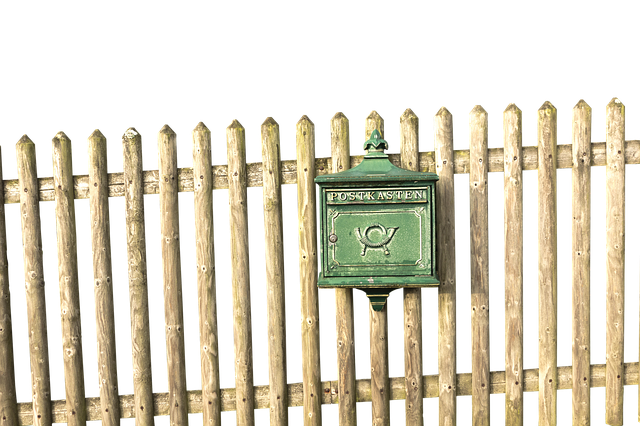In New Bedford, Massachusetts, the pursuit of eco-friendly solutions is gaining momentum, and fencing materials are no exception. This article explores sustainable fencing options that not only enhance outdoor spaces but also contribute to a greener environment. We delve into the benefits of using environmentally friendly materials, from reduced carbon footprints to promoting biodiversity. Additionally, we guide readers through installation, maintenance, and local availability, empowering them to make informed choices for their New Bedford properties.
- Eco-Friendly Fencing Options for New Bedford
- Benefits of Sustainable Fencing Materials
- Installation and Maintenance Considerations
- Local Availability & Environmental Impact
Eco-Friendly Fencing Options for New Bedford
New Bedford, MA, residents now have a growing array of eco-friendly fencing options to choose from. These alternatives not only enhance the aesthetics of outdoor spaces but also contribute to a greener environment. One popular choice is bamboo fencing, known for its rapid growth and strength. It offers a natural, attractive barrier while supporting sustainable practices. Another option is recycled plastic fencing, made from post-consumer waste, which is durable and low-maintenance.
Local suppliers are increasingly stocking these products due to their rising popularity. Wood chip fences, constructed from locally sourced wood chips, provide a cost-effective and organic solution. Additionally, living fences, featuring fast-growing plants like ivy or climbing vines, offer both privacy and an eco-friendly touch. These options cater to the diverse needs and preferences of New Bedford residents, promoting sustainable living while enhancing their outdoor environments.
Benefits of Sustainable Fencing Materials
In an era where environmental sustainability is at the forefront, choosing eco-friendly fencing materials offers a multitude of benefits for New Bedford residents and the local ecosystem. These materials not only contribute to a greener environment but also provide long-lasting, durable solutions for outdoor spaces. One of the primary advantages is their reduced ecological footprint; unlike traditional fences made from treated wood or metal, sustainable alternatives are often recycled, biodegradable, or sourced from renewable resources, minimizing the demand for new materials and the energy-intensive manufacturing processes associated with them.
Additionally, these fencing options can enhance the overall aesthetics of a property while promoting biodiversity. Many eco-friendly fence materials, such as bamboo, wood chips, or natural fibers, integrate seamlessly into their surroundings, creating harmonious outdoor settings. Moreover, some types encourage the growth of native plants and provide habitats for local wildlife, contributing to a balanced and thriving ecosystem right within one’s backyard.
Installation and Maintenance Considerations
When considering eco-friendly fencing materials, it’s crucial to understand the installation and maintenance aspects for a successful implementation in New Bedford, MA. One key factor is accessibility; some sustainable options might require specialized installation techniques or tools that traditional fencing doesn’t. Regular cleaning and inspection are also essential for maintaining these materials’ longevity and aesthetic appeal. For instance, wooden eco-fences may need occasional treatments to protect against weather damage and pests, while vinyl or composite fences typically demand minimal upkeep beyond periodic washing.
Compared to conventional fencing, sustainable options often provide long-term savings on maintenance costs, reducing the environmental impact of continuous repairs or replacements. Proper installation ensures these materials are secure and can withstand local climate conditions, further minimizing future maintenance needs. Homeowners should consult with professionals experienced in eco-friendly installations to ensure optimal results that complement their New Bedford landscape while promoting environmental sustainability.
Local Availability & Environmental Impact
In New Bedford, MA, eco-friendly fencing materials are increasingly accessible, reflecting a growing local demand for sustainable solutions. These options range from recycled plastic and wood composites to natural materials like bamboo and hemp. The availability of such products not only empowers homeowners and businesses to make environmentally conscious choices but also contributes to the region’s ecological health by reducing reliance on non-renewable resources.
The environmental impact of these fencing materials is significant. Traditional fencing often involves harmful manufacturing processes and contributes to deforestation. In contrast, eco-friendly alternatives are designed with a smaller carbon footprint. For instance, recycled plastic uses post-consumer waste, diverting it from landfills, while natural fibers like bamboo grow rapidly and absorb more CO2 than many other crops. These choices not only preserve local ecosystems but also promote a more sustainable future for New Bedford and its surrounding areas.
